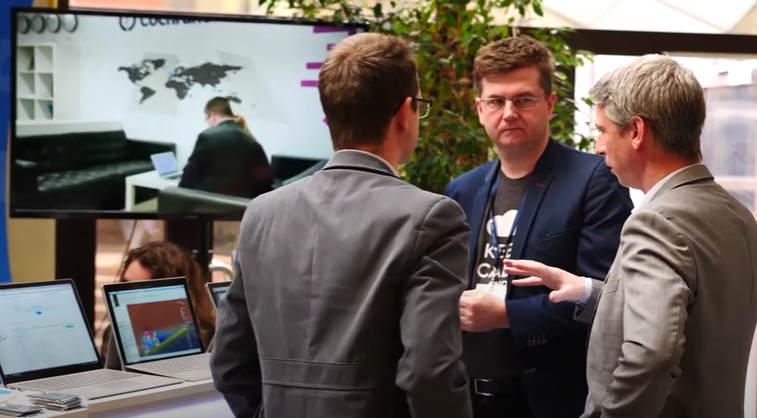
The Supercomputing Frontiers Europe is a global conference that gets into the latest trends and innovations in computational science and high-performance computing.
Supercomputing Frontiers Europe
The annual event is free, and it will be held online due to the COVID-19 pandemic. It is scheduled for July 19-23. The conference will feature virtual ICM seminars on HPC and computational science, and it will be broadcast straight from Warsaw, Poland.
The topics for the Supercomputing Frontiers Europe 2021 will be storage class memory, special architectures, smart systems, hybrid cloud/HPC, hybrid quantum computing and HPC, as well as omics and systems biology, the convergence of HPC, graph methods, AI, and big data.
Supercomputing Frontiers Europe will include streams that feature several computational science achievements and computing in Africa and India. The event is made to give the HPC community an open space to interact and exchange ideas.
Last year's event, which was also done virtually, attracted more than 100 registrations from more than 60 countries. The Supercomputing Frontiers Europe 2021 paper submission is now open, and it will close on May 16.
Submitted papers will undergo peer review, and it will be evaluated based on their significance, its originality, clarity of exposition and technical soundness.
The authors of accepted papers will then be invited by the Supercomputing Frontiers Europe 2021 program committee to publish their paper, right after a more independent review, in a special issue of the international journal Supercomputing Frontiers and Innovations. For more details, applicants are encouraged to check the website of Supercomputing Frontiers Europe 2021.
Dr. Marek Michalewicz, the committee chair and Supercomputing Frontiers conferences creator, said that they are convinced that the Supercomputing Frontiers Europe 2021 will help maintain the highest standards established in all past events.
Dr. Michalewicz said that their new initiative called Virtual ICM Seminars enabled them to host seminars by outstanding luminaries as Hiroaki Kitano from Systems Biology Institute, Tokyo, Stephen Wolfram, the founder and CEO of Wolfram Research and Alan Edelman, the creator of Julia language.
Dr. Michalewicz added they will continue to seek ideas that can change the course of supercomputing and focus on the newest global trends and the latest substantial innovations.
What is supercomputing?
Supercomputing refers to the processing of massive complex or problems with data by using the concentrated compute resources of different types of computer systems that are working in parallel, like a supercomputer, according to HPE.
Supercomputing also involves a system that is working at the maximum potential performance of any computer, usually measures in Petaflops. The sample use cases include energy, weather, life sciences, and manufacturing.
So why is there a need for supercomputing? It is because it enables problem-solving and data analysis that would be time-consuming, expensive, and impossible with ordinary computers, like fluid dynamics calculations.
Currently, massive data presents a compelling use case. A supercomputer can show insights in different troves of usually impenetrable information.
Higher Performance Computing or HPC offers a very helpful variant, making it possible to focus on computing resources on data analytics problems without paying for a full-scale supercomputer.
Related Article : AI Can Predict Tsunami Real-Time Through World's Fastest Supercomputer!
This article is owned by Tech Times
Written by Sieeka Khan
ⓒ 2025 TECHTIMES.com All rights reserved. Do not reproduce without permission.




